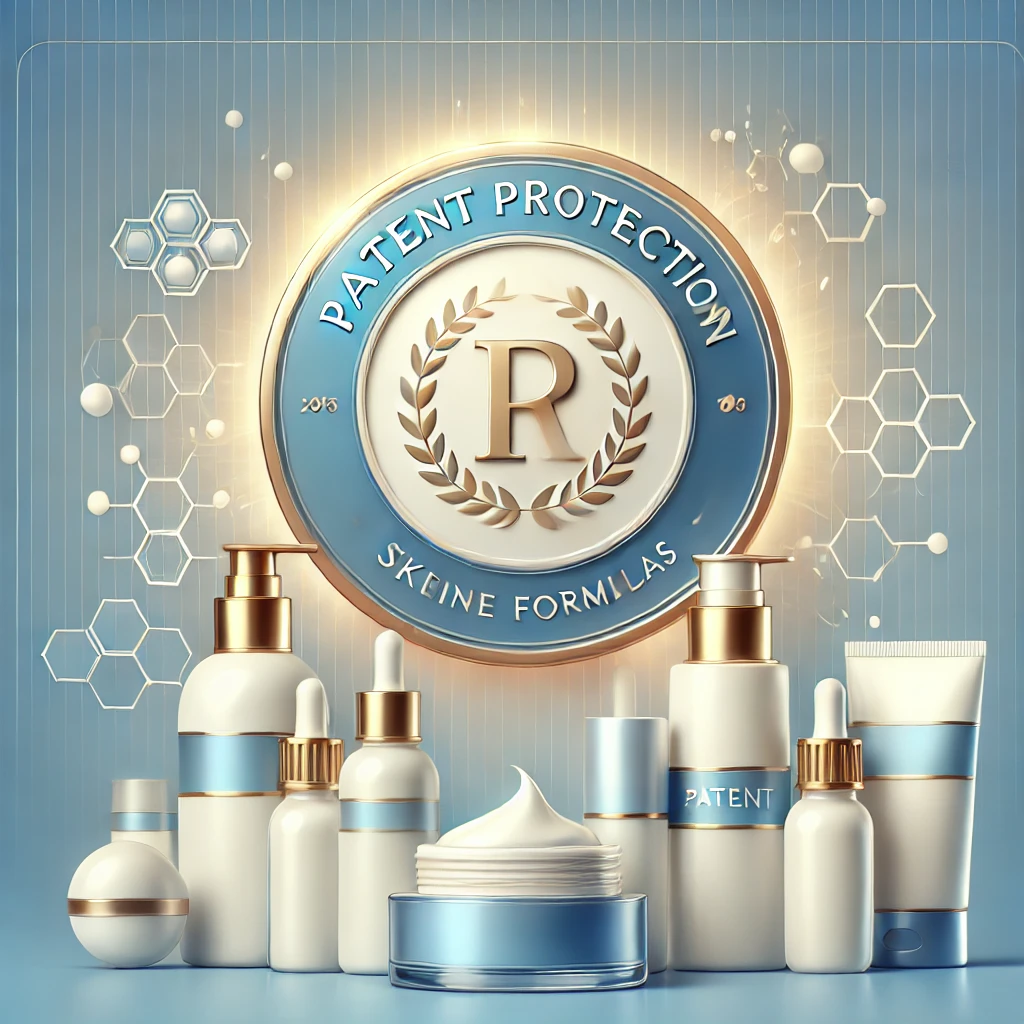Skincare is a big part of many people’s daily routines. Whether it’s a moisturizer, sunscreen, or anti-aging cream, these products help keep our skin healthy and glowing. But did you know that many of these formulas are protected by patents? A patent is like a superhero shield that helps inventors keep their ideas safe from competitors.
What is a Skincare Formula?
A skincare formula is like a recipe for your face cream, lotion, or serum. It lists all the ingredients and how much of each to use. Some formulas might have special ingredients or combinations that make the product work in a new or better way.
Why Patent Protection Matters
Imagine spending years and millions of dollars to create the perfect anti-aging cream. You’d want to make sure no one else could just copy your idea, right? That’s the main reason for patents. They give inventors the right to stop others from making, using, or selling their invention for a set time – usually 20 years.
What Can Be Patented in Skincare?
In the skincare world, you can patent:
- New ingredients (like a newly discovered plant extract)
- Special combinations of ingredients
- New ways of making skincare products
- New ways of using skincare products

For example, a company might patent a new molecule they created that helps reduce wrinkles, or a unique way of combining natural oils that makes skin super soft.
Benefits of Patenting Skincare Formulas
- Exclusive Rights: Only you can sell your patented product for a while. This can help you make more money and become a leader in the market.
- Attract Investors: Patents can make your company more valuable. Investors often see patents as a sign of innovation.
- License Your Invention: You can let other companies use your patented formula for a fee. This can be a good way to make extra money.
Challenges in Patenting Skincare Formulas
Getting a patent isn’t always easy. Here are some challenges:
- It Must Be New: Your formula needs to be different from anything that’s come before. This can be tough because there are already so many skincare products out there.
- It Can’t Be Obvious: Even if your formula is new, it can’t be something that any skilled person in skincare could easily come up with.
- You Have to Share Details: When you apply for a patent, you have to explain exactly how your formula works. Some companies worry this might give away their secrets.
- It’s Expensive: Getting a patent can cost anywhere from $5,000 to $30,000 or more.
The Patent Application Process
Here’s a simple breakdown of how to get a patent:
- Come up with a new idea
- Search to make sure it’s really new
- Write a detailed description of your invention
- File the application with the patent office
- Wait for the patent office to review it (this can take 1-3 years)
- Respond to any questions from the patent office
Alternatives to Patents
Some companies choose not to patent their formulas. Instead, they might:
- Keep it a Trade Secret: This means they don’t tell anyone how they make their product. The recipe for Coca-Cola is a famous example of a trade secret.
- Use Copyrights or Trademarks: These protect things like the product’s name, logo, or packaging design.
Global Considerations
If a company wants to sell their product in different countries, they might need to get patents in each country. This can be expensive and complicated because patent laws are different in different places.
Future Trends in Skincare Patents
As people become more interested in natural and sustainable products, we’re seeing more patents for skincare formulas using plant-based ingredients. Another exciting trend is personalized skincare, where companies create custom formulas for each person’s unique skin.

Conclusion
Patent protection plays a big role in the skincare industry. It helps companies protect their new ideas and encourages them to keep inventing better products for us to use. While getting a patent can be challenging and expensive, many companies find it worth the effort to stand out in the competitive world of skincare.
Remember, if you’re thinking about patenting a skincare formula, it’s always best to talk to a patent lawyer. They can give you expert advice tailored to your specific situation.
